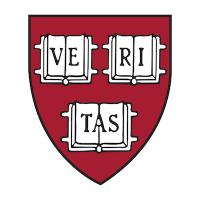What do they do?
Assist biological and medical scientists. Set up, operate, and maintain laboratory instruments and equipment, monitor experiments, collect data and samples, make observations, and calculate and record results. May analyze organic substances, such as blood, food, and drugs.
Also known as:
Biological Science Laboratory Technician (Biological Science Lab Tech), Biological Science Technician, Biological Technician, Biologist Aide, Environmental Technician, Laboratory Assistant, Laboratory Technician, Marine Fisheries Technician, Microbiology Technician, Research Assistant, Research Associate, Research Specialist, Research Technician, Wildlife Biology Technician, Wildlife Technician
-
2.4%
Change
Ranks #51 in job growth rate210Job Openings
Ranks #19 in net job growth
Looking for colleges that offer a specific major? Use the College Match Tool to find your best-matched schools and discover your estimated Net Price!
- Bachelor's degree (37%)
- High school diploma equivalent (19%)
- Some college, no degree (16%)
- Associate's degree (12%)
- Master's degree (8%)
- Less than high school diploma (5%)
- Doctorate or Professional Degree (4%)
Most Popular Majors that prepare Biological Technicians
-
#1
-
Degrees Granted
3,939
-
Female Students
2,681
-
Male Students
1,258
-
Median Starting Salary
$40,800
-
-
#2
-
Degrees Granted
3,817
-
Female Students
2,470
-
Male Students
1,347
-
Median Starting Salary
$40,800
-
-
#3
-
Degrees Granted
1,113
-
Female Students
677
-
Male Students
436
-
Median Starting Salary
$42,090
-
-
#4
-
Degrees Granted
690
-
Female Students
379
-
Male Students
311
-
Median Starting Salary
$42,090
-
-
#5
-
Degrees Granted
470
-
Female Students
298
-
Male Students
172
-
Median Starting Salary
$42,090
-
People in this career often have these skills:
- Reading Comprehension - Understanding written sentences and paragraphs in work-related documents.
- Critical Thinking - Using logic and reasoning to identify the strengths and weaknesses of alternative solutions, conclusions, or approaches to problems.
- Active Listening - Giving full attention to what other people are saying, taking time to understand the points being made, asking questions as appropriate, and not interrupting at inappropriate times.
- Science - Using scientific rules and methods to solve problems.
- Active Learning - Understanding the implications of new information for both current and future problem-solving and decision-making.
- Writing - Communicating effectively in writing as appropriate for the needs of the audience.
People in this career often know a lot about:
- Biology - Knowledge of plant and animal organisms, their tissues, cells, functions, interdependencies, and interactions with each other and the environment.
- English Language - Knowledge of the structure and content of the English language including the meaning and spelling of words, and rules of composition and grammar.
People in this career often have talent in:
- Oral Comprehension - The ability to listen to and understand information and ideas presented through spoken words and sentences.
- Inductive Reasoning - The ability to combine pieces of information to form general rules or conclusions (includes finding a relationship among seemingly unrelated events).
- Near Vision - The ability to see details at close range (within a few feet of the observer).
- Oral Expression - The ability to communicate information and ideas in speaking so others will understand.
- Information Ordering - The ability to arrange things or actions in a certain order or pattern according to a specific rule or set of rules (e.g., patterns of numbers, letters, words, pictures, mathematical operations).
- Written Comprehension - The ability to read and understand information and ideas presented in writing.
- Written Expression - The ability to communicate information and ideas in writing so others will understand.
- Deductive Reasoning - The ability to apply general rules to specific problems to produce answers that make sense.
- Problem Sensitivity - The ability to tell when something is wrong or is likely to go wrong. It does not involve solving the problem, only recognizing that there is a problem.
- Category Flexibility - The ability to generate or use different sets of rules for combining or grouping things in different ways.
- Speech Recognition - The ability to identify and understand the speech of another person.
- Speech Clarity - The ability to speak clearly so others can understand you.
- Selective Attention - The ability to concentrate on a task over a period of time without being distracted.
People in this career often do these activities:
- Collect biological specimens.
- Monitor operational procedures in technical environments to ensure conformance to standards.
- Research microbiological or chemical processes or structures.
- Interpret research or operational data.
- Record research or operational data.
- Prepare biological samples for testing or analysis.
- Set up laboratory or field equipment.
- Clean objects.
- Care for plants or animals.
- Analyze chemical compounds or substances.
- Examine characteristics or behavior of living organisms.
- Order materials, supplies, or equipment.
This page includes data from:

 Occupation statistics: USDOL U.S. Bureau of Labor Statistics Occupational Employment Statistics
Occupation statistics: USDOL U.S. Bureau of Labor Statistics Occupational Employment Statistics
 Videos: CareerOneStop, USDOL/ETA and the Minnesota Department of Employment & Economic Development
Videos: CareerOneStop, USDOL/ETA and the Minnesota Department of Employment & Economic Development























